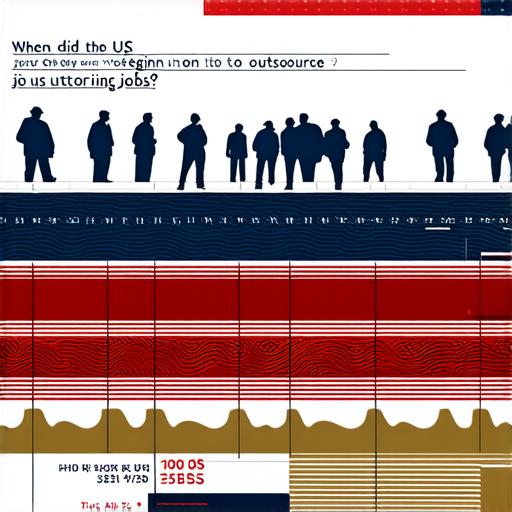As the world becomes increasingly interconnected, outsourcing has become an increasingly popular practice for businesses looking to save money and improve efficiency. However, many people are unsure when the United States began outsourcing jobs, or how it has impacted the country’s economy and workforce. In this article, we will explore the history of outsourcing in the United States, from its origins to its current state.
The History of Outsourcing in the United States
Outsourcing is not a new practice; it has been around for centuries. In fact, outsourcing was a common practice in ancient times, with merchants and traders often hiring others to handle tasks such as transportation and distribution. However, it wasn’t until the Industrial Revolution that outsourcing became a widespread practice in the United States.
During the Industrial Revolution, many manufacturers began to outsource certain tasks to contractors and suppliers who could produce goods more cheaply or efficiently than they could on their own. This allowed these companies to focus on their core competencies and improve their bottom lines. However, outsourcing was not without its challenges. For example, communication and coordination between manufacturers and suppliers were often difficult, and quality control was a major concern.
Despite these challenges, outsourcing continued to be a popular practice throughout the 20th century. During World War II, many American companies outsourced manufacturing tasks to foreign countries in order to free up resources for the war effort. In the post-war era, outsourcing became an increasingly popular way for businesses to cut costs and improve efficiency.
The Impact of Outsourcing on the United States Economy and Workforce
Today, outsourcing has become a major part of the global economy, with companies from all over the world outsourcing tasks to suppliers in countries such as China, India, and Mexico. The impact of outsourcing on the United States economy and workforce has been significant.
On the one hand, outsourcing has helped many American companies to become more competitive and profitable. On the other hand, it has also led to job losses for some workers and concerns about the loss of skilled jobs.
One of the main reasons for this is the global nature of the economy. With the rise of the internet and digital technologies, it has become easier than ever for companies to find suppliers and contractors from all over the world. This means that companies can often outsource tasks to countries where labor costs are lower or where there is a greater supply of skilled workers.

However, this also means that some American workers are struggling to compete with their counterparts in these countries. For example, a software engineer in Silicon Valley may struggle to find work that pays as well as an equivalent position in India or China. This has led to concerns about the loss of high-skilled jobs and the need for retraining programs to help American workers adapt to the changing economy.
Case Studies: The Good and the Bad of Outsourcing
There are many examples of companies that have successfully outsourced tasks to improve efficiency and reduce costs. For example, General Motors (GM) famously outsourced much of its manufacturing to suppliers in Mexico in the 1980s, which helped the company to become more competitive and profitable. However, this decision also led to job losses for many American workers, as well as criticism from some politicians and labor unions.
Another example is Dell, which famously outsourced much of its manufacturing to suppliers in Taiwan in the 1990s. This helped the company to become more efficient and cost-effective, but it also led to job losses for many American workers and concerns about the loss of skilled jobs.
Despite these challenges, there are also many examples of companies that have successfully outsourced tasks while still providing good working conditions and fair wages for their employees. For example, some companies have established their own supplier networks in countries such as Mexico or China, which allows them to have greater control over the quality of the goods they produce.
